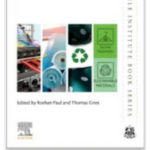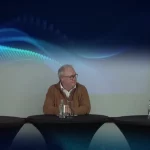The UK Fashion & Textile Association (UKFT) has been working closely with the British Fashion Council (BFC), Innovate UK and other stakeholders to attract wide-ranging government support for a new 10-year Fashion Industry Sustainable Change Programme, focused on creating a world leading circular fashion and textiles eco-system in the UK.
The programme aims to deliver investment in skills, innovation clusters and regional regeneration, alongside the creation of an industry-led Centre of Excellence. It will focus on supporting the industry to embrace new circular business models and help to create the world-leading recycling and sorting infrastructure that will truly bring about systemic change and opportunities for UK manufacturing.
UKFT has been working closely on this agenda with Innovate UK, UK Research & Innovation (UKRI), the Natural Environment Research Council (NERC) and Arts & Humanities Research Council (AHRC), the Department for Environment, Food & Rural Affairs, the Department for Business, Energy & Industrial Strategy, the Department for Digital, Culture, Media & Sport, the British Retail Consortium and Wrap (Textiles 2030). UKFT is also on the steering committee of the Institute of Positive Fashion, which is expected to lead the new Centre of Excellence.
This move was recognised at an event at Downing Street last month, hosted by the Prime Minister Boris Johnson and the BFC.
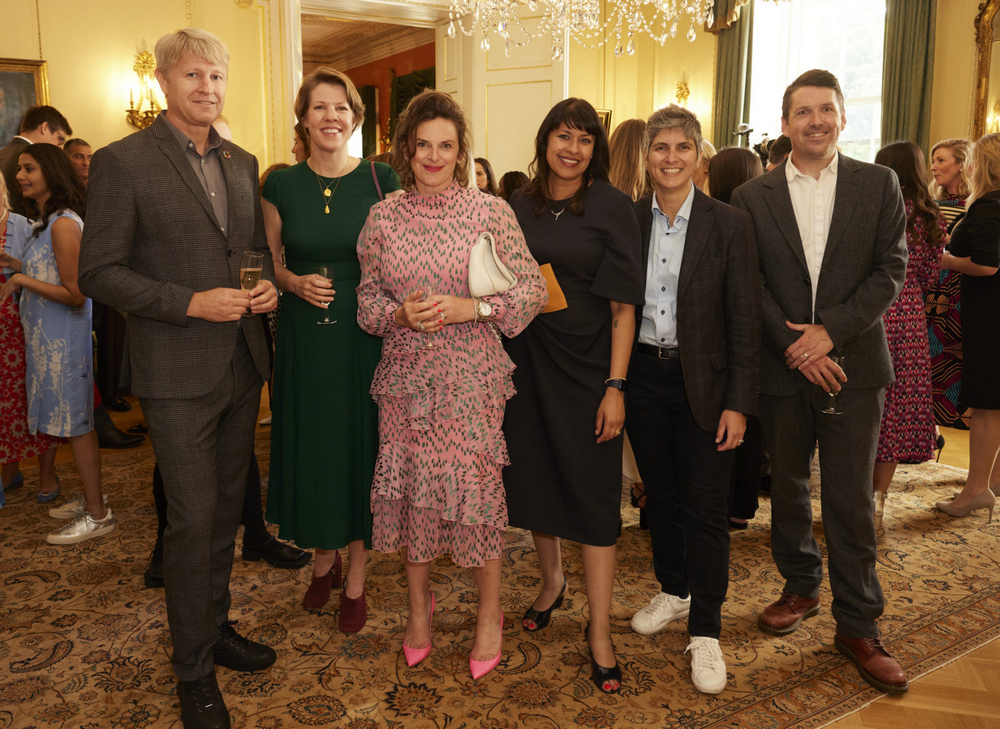 Image: British Fashion Council
Image: British Fashion Council
Pictured from left to right: Dax Lovegrove, Jimmy Choo; Judith Rosser-Davies, UKFT; Lynda Petherick, Accenture; Shailja Dubé, BFC, Esra Kasapoglu and Tom Fiddian, Innovate UK at the Downing Street reception.
It was attended by guests from across the fashion and textiles industry including designers, manufacturers and innovators, media, retailers and business leaders, as well as government and academia.
They included Anya Hindmarch, Fashion Designer; Alicia Rowbotham, Textile Designer; Anthony Burns, ACS Clothing; Chris Gaffney, Johnstons of Elgin; Cyndi Rhoades, Worn Again Technologies; David Collinge, John Spencer Textiles; Dax Lovegrove, Jimmy Choo; Diana Kakkar and Joshua Rosario, MAES London; Esra Kasapoglu, Innovate UK; Holli Rogers, FARFETCH & Browns; Ian Maclean, John Smedley; James Lambert, Value Retail PLC; Jamie Gill, Roksanda; Jefferson Hack, Dazed Media; Dr John Parkinson, iinnouiio; Jonathan Ackeroyd, Burberry; Jo Churchill MP, Environment Minister; Justin Thornton and Thea Bregazzi, Preen by Thornton Bregazzi; Lynda Petherick, Accenture; Nigel Lugg MBE, UKFT; Orsola de Castro, Fashion Revolution; Oscar Macdonald, Begg x Co; Professor Parik Goswami, University of Huddersfield; Paul Scully MP, Minister for Small Business; Professor Steve Russell, University of Leeds; Tina Lake, MY WARDROBE HQ; Tom Fiddian, Innovate UK.
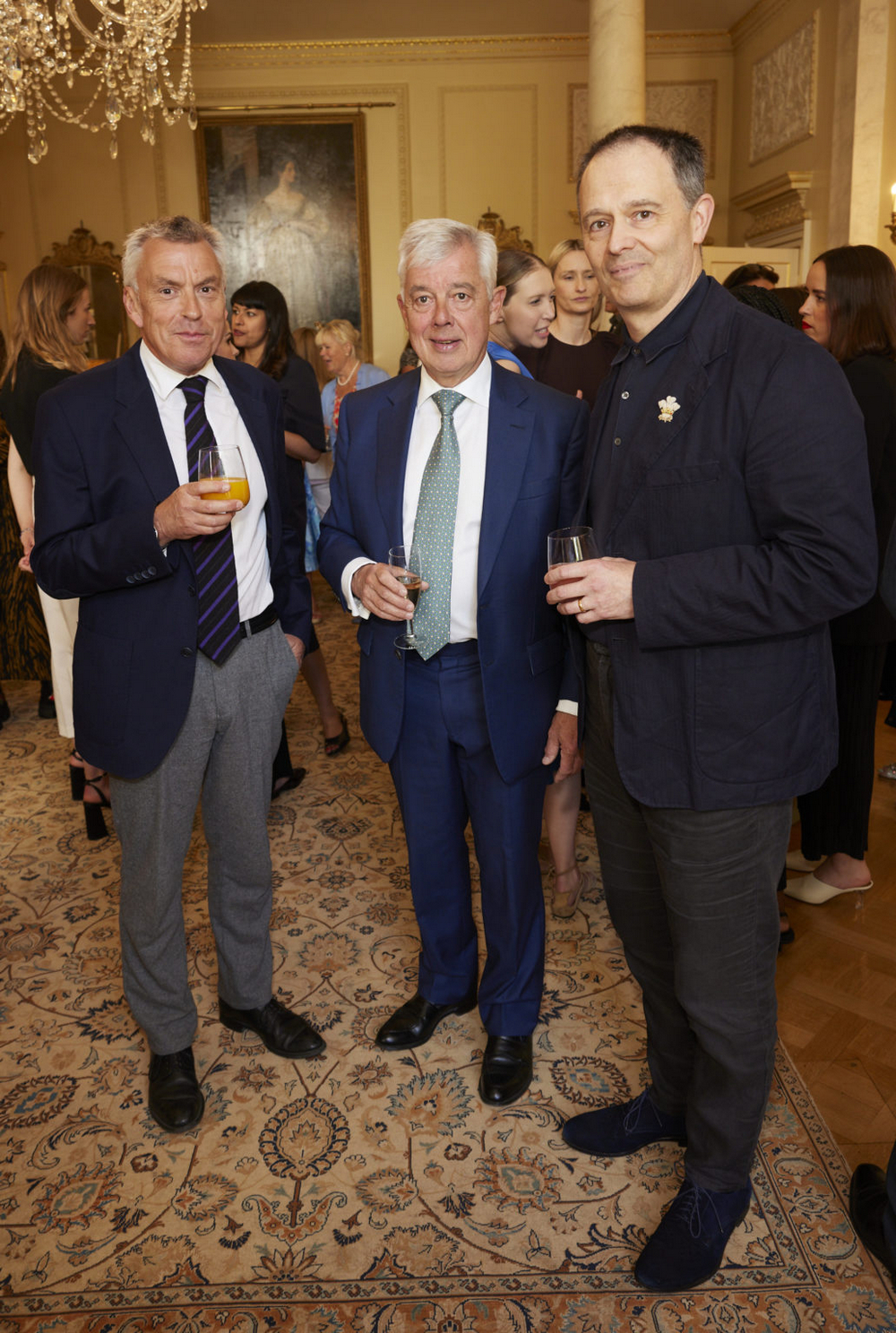 Image: British Fashion Council
Image: British Fashion Council
UKFT Board Members Stewart McGuffie, Nigel Lugg OBE and Ian Maclean MBE at the Downing Street reception.
Nigel Lugg OBE, Chair of UKFT, said: “This is a pivotal time for UK fashion and textiles. In order to survive and grow, it is essential that the sector strengthens its sustainable competitiveness. It will mean a fundamental change and one that needs to be delivered at pace, and will call for new skills and new jobs.
“We are delighted that the UK government is recognising the importance of our sector and the opportunities that exist. We look forward to working with the industry to drive a change with far-reaching benefits for the whole UK fashion and textile supply chain.”
Boris Johnson, Prime Minister, said: “The UK fashion industry is a big contributor to the economy and to brand Britain and I am delighted to support this brilliant industry as it moves forward with a 10-year Fashion Industry Sustainable Change Programme bringing opportunities across the UK to meet our Government Climate Action Plan of environmental and societal change.”
Stephanie Phair OBE, Chair of the British Fashion Council, said: “Imagine 10 years from now a city like Leeds which has a rich history in manufacturing and textiles retaining its role as a key part of the fashion and textiles industry and an example of a circular city with reprocessing plants, energised highstreets with takeback schemes where product is broken down, re-spun and made to create new fabrics; a city with an inclusive and diverse workforce, with new skills and learning opportunities. This isn’t a pipe dream – elements of this are already being seen around the world – we can bring this expertise together and make it a reality for the UK putting us at the forefront of change.
“The scale of the challenge is such that industry can’t do this alone. Many great things are being done in silos, but joining the dots, thoughtful regulation and supercharging change through funding will help the UK lead in this respect.”
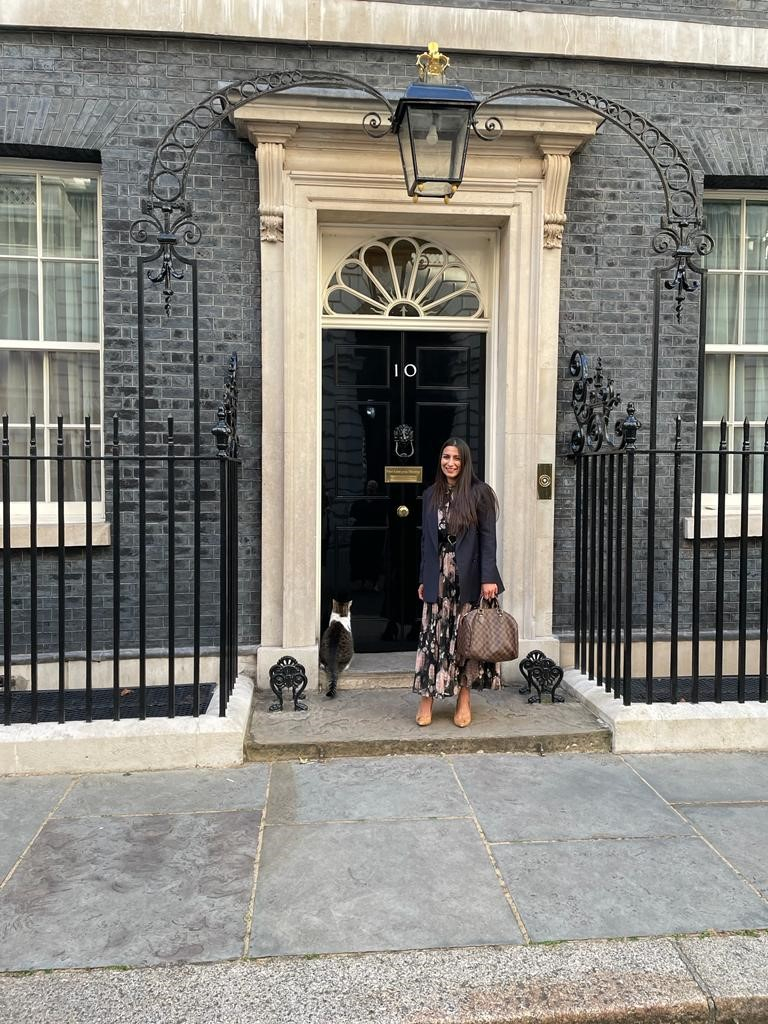 Diana Kakkar, founder of MAES London, at the Downing Street reception.
Diana Kakkar, founder of MAES London, at the Downing Street reception.
About UKFT (Video)
(Source: UKFT)



